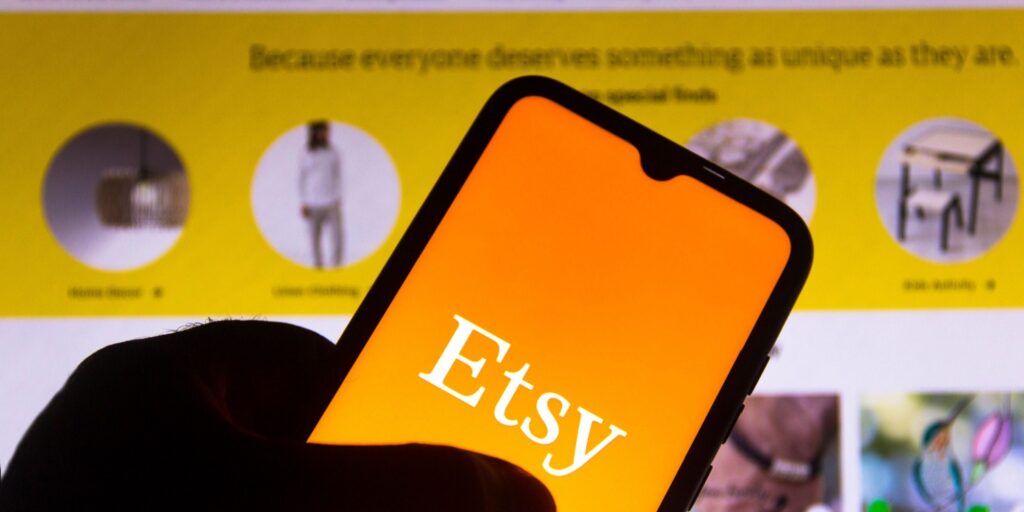Financial limitations are one of the biggest obstacles for aspiring entrepreneurs. Of course, you need some money to launch a business, but depending on your idea, you don’t necessarily need much to get started.
In fact, there are plenty of low-cost businesses that you could start today. Keep reading if you’re looking for inspiration on how to become your own boss without breaking the bank.
1. Content writing
Content writing is a flexible and low-cost business that you can carry out from the comfort of your own home. Ideal for creative entrepreneurs, a content writing business can involve a wide range of activities, such as social media content production, blog writing, and copywriting for websites.
If you’re new to content writing and need some training to start this type of business, an initial expense might be to take an online course. However, they’re generally not very expensive.
You can find lots of free content writing courses on Udemy, and paid ones average around £50. Otherwise, if you’re an experienced content writer, you can fast-track to creating a profile on freelance marketplaces like Upwork and Fiverr (be sure to have a portfolio ready with examples of your work to secure your first clients).
Creative businesses like content writers tend to start out as freelancers. This means working with multiple clients on a short-term basis and earning an income per job rather than a regular salary. This means you’re self-employed, and you’d have to complete an annual Self Assessment Tax return to notify HMRC of your earnings.
Later down the line once you’ve become a more established writer, you can form a company and incorporate it with 1st Formations.
2. Affiliate marketing
Affiliate marketing doesn’t cost much to start, but it does take time and dedication to build a successful business. This low-cost business idea involves promoting other brands’ products and services to your online audience and earning a commission for the sales you generate.
To start this low-cost business, you’ll need a website and a social media presence. The social media part is free, and a basic website plus domain name will cost you around £100. Also, website hosting is typically charged monthly, with basic subscriptions costing around £5 a month.
- Affiliate marketing – the insiders’ guide
- It’s never too late to start your own business – here’s why
- ‘Freelancing is booming in the UK’: Matt Dowling, Founder of the Freelancer Club
You then need to sign up for affiliate programmes, like Amazon Associates. These are generally free to join. Then, simply start recommending products to your followers.
We mentioned that affiliate marketing is commission-based, meaning the larger your audience, the higher your earning potential. So, if you’re dedicated, self-disciplined, and forward-thinking, this could be a great low-cost business idea for you to start today.
3. Private tutor

If there’s something you’re particularly passionate about or talented in, why not become a private tutor? This low-cost business idea could involve teaching web design, foreign languages, or an academic subject.
It generally doesn’t cost much to start a private tutor business. However, one of your primary expenses will be obtaining relevant qualifications.
Although formal qualifications are not essential to becoming a private tutor, they are incredibly powerful in boosting credibility. Your future clients will want to see that you’re skilled and an expert in your field before choosing you over a competitor.
So, if you want to teach English as a foreign language, consider a TEFL or Cambridge CELTA qualification, where course prices start at just £64.50. Or, if you want to teach a musical instrument, you should have a Grade 8 certification under your belt.
Like content writers, private tutors tend to get started as freelancers. Join dedicated platforms like Tutorful (free to sign up), where students can find you, book lessons, and you can grow your new business quickly. There are also plenty of useful resources to help you get your low-cost business started today.
4. Etsy shop
A popular and low-cost business you can start today is an Etsy shop or simply selling items online. This is a great option if you’re a creative or artistic entrepreneur. For example, if you make handmade goods (like scented candles or bespoke jewellery) or create artwork.
Depending on your products, production and delivery will be your main start-up costs. Sellers can join Etsy and other online marketplaces (like eBay and Amazon) for free. However, there are some fees to consider, such as listing, transaction, and advertising fees.
Generally, though, they’re pretty low. For instance, Etsy charges a listing fee of 15p per item and a 6.5% transaction fee on the sale price. These will vary between platforms, so check all the seller costs before starting.
5. Bookkeeper

If you’ve got a knack for numbers, have basic accounting knowledge, and are highly organised, another low-cost business option is bookkeeping. Many organisations outsource this function to ease their workload, which you could help with.
As a bookkeeper, you’ll be responsible for efficiently recording a company’s or individual’s financial information, including cash flow, revenue, and invoice management.
Like being a private tutor, there are no mandatory qualifications to start a bookkeeping business – you could get started immediately. However, clients will base your trustworthiness on your experience, so you should consider obtaining relevant certifications like a Level 2 Certificate in Bookkeeping (£66 through the Association of Accounting Technicians).
In addition, you should already have valuable work experience as a bookkeeper through previous employment or internships and training placements. This is vital for demonstrating your credibility and training and proving that you’re familiar with bookkeeping software, which your future customers will expect you to know how to use from the get-go.
6. Graphic designer
Every business needs visual assets, so if you’re a skilled and creative art worker, why not turn your talent into a graphic design business? It’s relatively low-cost; all you need is a computer, access to adequate design apps like Adobe Illustrator or Photoshop, and a portfolio of your work.
As a graphic designer, you could offer various services or focus on a particular niche, such as logo design, social media graphics, or brochures.
Assuming you have sufficient graphic design experience, your start-up costs will be low. We recommend creating a brand and marketing yourself via a dedicated website, where you can showcase your previous work and let your audience know more about you, your style, and your work ethic.
You then need to attract clients through sites like Fiverr and build your professional network through platforms like LinkedIn. You could even find a co-working space specifically dedicated to creative entrepreneurs, where you could meet other like-minded business owners and spread the word about your services.
7. Podcast business

The podcast industry has grown immensely over the last few years, and it’s set to continue on an upward trajectory. If you care about a certain topic (like sports or politics, for example), have an authentic approach, and are prepared to produce content consistently, then a podcast could be the right low-cost business option for you.
Some routes into podcasting can incur substantial costs. However, there are ways to reduce those expenses and get started relatively cheaply.
You don’t necessarily need a top-of-the-range microphone just yet. If you have one already, great, it’ll certainly help, but it’s not essential immediately. You could opt for a mid-range one, which will cost around £25-£50 in stores like Argos, Amazon, and Currys.
You then need software to capture and edit your audio. Audacity and Spotify for Podcasters are entirely free. You’ll also need a hosting platform to distribute your content. Again, there are free options, like Podbean and Spreaker.
Once your pool of listeners starts to grow and you gain sponsorships, you can always upgrade your equipment and software to improve the quality of your podcast business. Until then, you don’t need much to get started.
Incorporate your business
For many of the low-cost businesses we’ve discussed, it’s common to get started as a freelancer. If you choose to freelance initially, don’t forget to incorporate your business once it’s established. You could, of course, incorporate it straight away if you wish.
Incorporation offers an array of advantages. First and foremost, you’ll have limited liability protection thanks to companies being their own legal entities, which protects your personal assets should the company get into financial trouble. This is an essential way to protect your personal assets and reduce the financial impact of potential business failure.
You’ll also have access to certain tax benefits as a limited company director, like lower corporate tax rates (compared to income tax rates) and the ability to claim extra business expenses than self-employed individuals.
Another important advantage is credibility, which is crucial for a small business. Having ‘Ltd’ or ‘Limited’ at the end of your business name shows that you’re a legally registered company and abide by UK company law. This encourages people to trust you and feel safe in purchasing your products and services.
When you’re ready to incorporate your new business venture, register with 1st Formations. We are an authorised electronic filing agent of Companies House, and we make the registration process quick and simple.
From just £52.99, we’ll handle your Companies House registration, file your first confirmation statement, and let you know once your company has been approved. You’ll also receive a free business bank account, a domain name for your website, and access to our Online Company Manager.
Found the perfect low-cost business idea for you in this article? Choose your company formation package today.
Thanks for reading
There are numerous avenues for aspiring entrepreneurs to launch a business without breaking the bank. Whether you’re creative, have a particular passion you’d like to teach, or are a tech wizard, there are plenty of low-cost business ideas to help you turn your dreams into reality today.
And don’t forget that our expert team at 1st Formations is always here to provide business advice and answer your questions about running a company in the UK.
Need more inspiration? Take a look at some of our clients’ very own success stories on our Case Studies page.
Please note that the information provided in this article is for general informational purposes only and does not constitute legal, tax, or professional advice. While our aim is that the content is accurate and up to date, it should not be relied upon as a substitute for tailored advice from qualified professionals. We strongly recommend that you seek independent legal and tax advice specific to your circumstances before acting on any information contained in this article. We accept no responsibility or liability for any loss or damage that may result from your reliance on the information provided in this article. Use of the information contained in this article is entirely at your own risk.










Join The Discussion
Comments (2)
This was an insightful read. These low cost business ideas seem extremely feasible. I will try to implement some of these conveniences in my own personal tax advisory UK business.
Thank you for your kind comment, David. We’re so glad you will be able to implement some of these conveniences in your own financial business.
Kind regards,
The 1st Formations Team